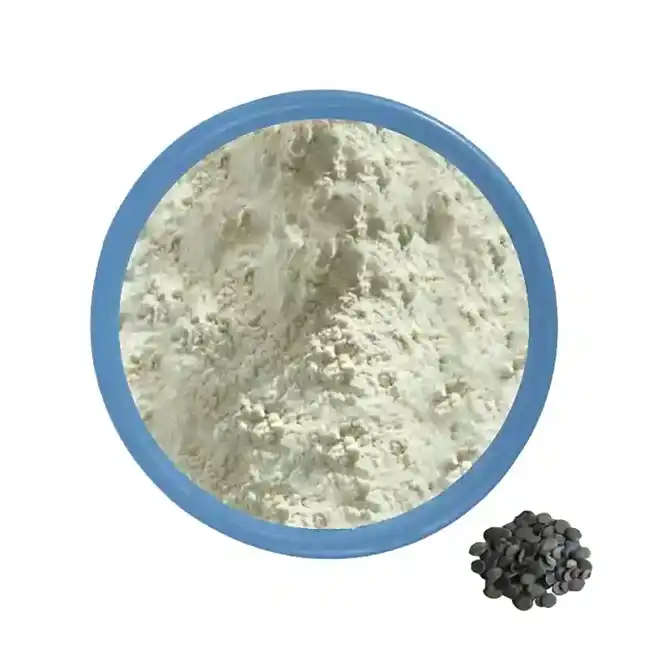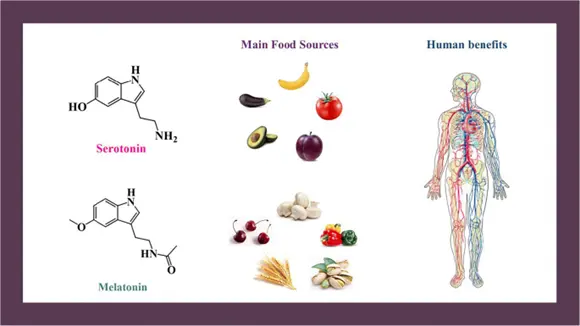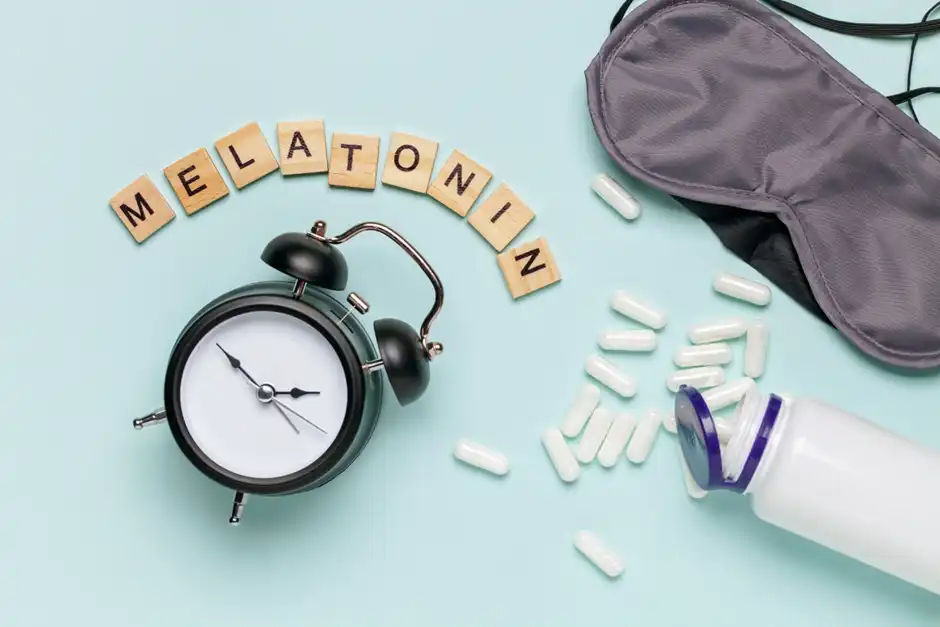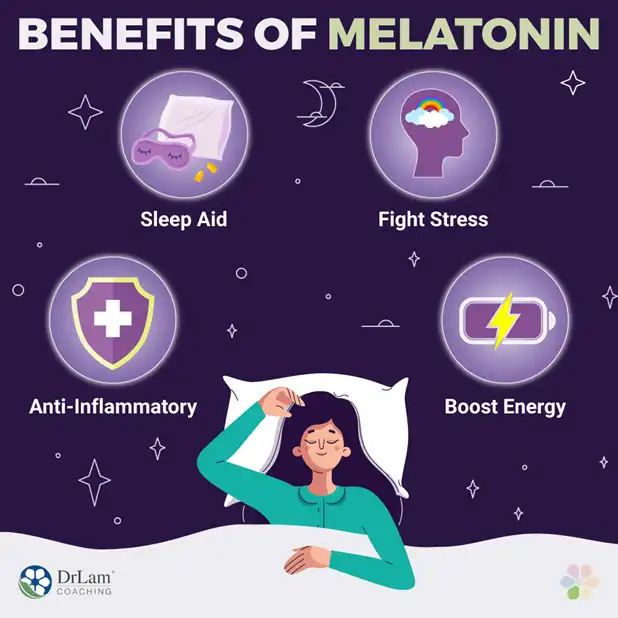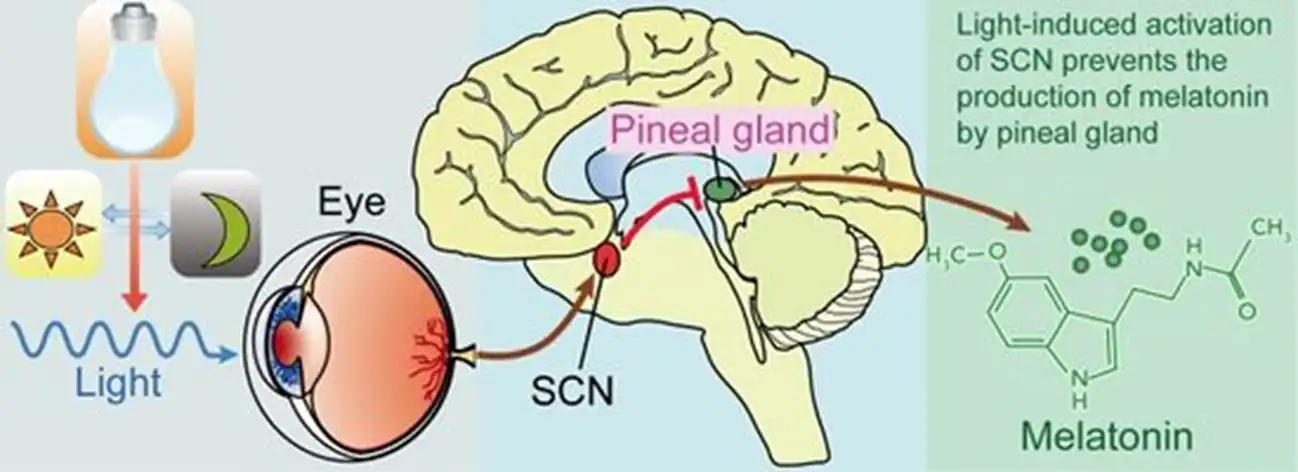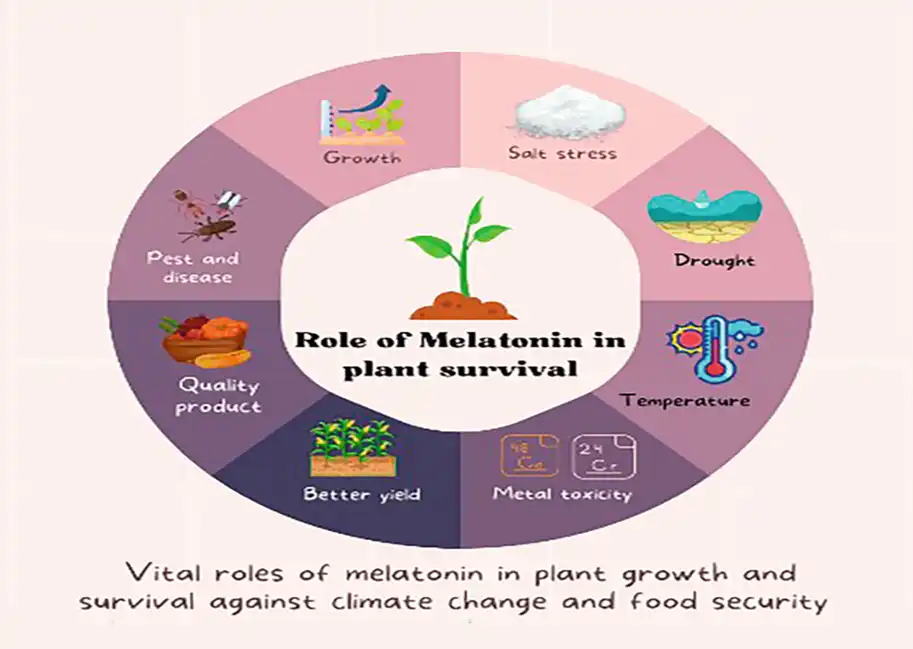Melatonin: What it is and Functions
What is melatonin?
Melatonin is a natural hormone that’s mainly produced by your pineal gland, which is a tiny gland in your brain. Your pineal gland is part of your endocrine system. Melatonin helps with the timing of your circadian rhythms (24-hour internal clock) and with sleep. Being exposed to light at night can block melatonin production. The production and release of melatonin in the brain is connected to time of day, increasing when it's dark and decreasing when it's light. Melatonin production declines with age. Melatonin is also available as a supplement, typically as an oral tablet or capsule. Most melatonin supplements commonly used for sleep disorders, such as insomnia and jet lag.
Yangge Biotech Offers Melatonin with meticulously formulating wellness products using premium grade ingredients strictly sourced through our vendor certification program. All of our products undergo rigorous testing to ensure you are receiving the purity, potency and guaranteed quality labeled on each product.
Melatonin Efficacy and Features
- Circadian rhythm sleep disorders in the blind: Melatonin can help improve these disorders in adults and children.
- Delayed sleep phase (delayed sleep-wake phase sleep disorder): In this disorder, your sleep pattern is delayed two hours or more from a conventional sleep pattern, causing you to go to sleep later and wake up later. Research shows that melatonin reduces the length of time needed to fall asleep and advances the start of sleep in adults and children with this condition. Talk to your child's doctor before giving melatonin to a child.
- Insomnia: Research suggests that melatonin might slightly reduce the time it takes to fall asleep, but its effects on sleep quality and total sleep time aren't clear. Melatonin might be more beneficial for older adults who could be melatonin deficient.
- Jet lag: Evidence shows that melatonin can improve jet lag symptoms, such as alertness and daytime sleepiness.
- Shift work disorder: It's not clear whether melatonin can improve daytime sleep quality and duration in people whose jobs require them to work outside the traditional morning to evening schedule.
- Sleep disorders in children: Small studies have suggested melatonin might help treat sleep disturbances in children with a number of disabilities. However, good bedtime habits are usually recommended as an initial treatment. Talk to your child's doctor before giving melatonin to a child.
What are the Sources of Melatonin?
Most food databases do not list the amount of melatonin in foods, but according to available research, these six foods are good sources of melatonin:
· Tart Cherries
Tart cherry juice is one of the best-known sleep aids. Researchers have found that it increases melatonin levels in the body and enhances sleep. Keep in mind that cherry juice is high in sugar. Drinking it nightly could significantly raise your intake of calories. Eating cherries instead of drinking their juice is a healthier way of getting melatonin.
· Goji Berries
Produced by a plant native to China, goji berries have been touted for their anti-aging effects. They are also high in melatonin and may improve sleep.
· Eggs
Among animal products, eggs are one of the best sources of melatonin. Eggs are also highly nutritious, offering protein and iron, among other essential nutrients.
· Milk
Warm milk is a traditional remedy for insomnia, so it's no surprise that it’s high in melatonin. It could be a good option if you tolerate dairy.
· Fish
Fish is a better source of melatonin than other meats. The best options are oily fish like salmon and sardines, which also provide valuable omega-3 fatty acids.
· Nuts
Most nuts have a good amount of melatonin. Pistachios and almonds are among the highest. Nuts also are an excellent source of many antioxidants, healthy omega-3 fats, and minerals.
Melatonin for Sleep: Does It Work?
Melatonin sleep aids are growing in popularity, with 3 million Americans using them in 2012, according to a nationwide survey from the Centers for Disease Control and Prevention. If you’re among them or are considering melatonin for sleep, it’s smart to understand exactly how melatonin works. melatonin has often been referred to as a “sleep hormone.” While melatonin isn’t essential for sleeping, you sleep better when you have the highest levels of melatonin in your body.
Why you need Melatonin?
A lack of sleep negatively impacts your health. It impedes learning and increases insulin resistance, which can progress to diabetes. It can also disrupt hunger hormones, meaning you may end up eating more than you normally would.
Melatonin helps your body with its versatile benefits:
Can Support Better Sleep
Melatonin is often called the sleep hormone — and for good reason. It’s one of the most popular sleep aids and a common natural remedy to treat issues like insomnia. Multiple studies have demonstrated that melatonin can support sleep. One study in 50 people with insomnia showed that taking melatonin two hours before bed helped people fall asleep faster and enhanced overall sleep quality.
Could Reduce Symptoms of Seasonal Depression
Seasonal affective disorder (SAD), also called seasonal depression, is a common condition that is estimated to affect up to 10% of the population worldwide. Some research indicates that it could be linked to changes in your circadian rhythm caused by seasonal light changes. Because melatonin plays a role in regulating circadian rhythm, low doses are often used to decrease symptoms of seasonal depression.
Jet lag
Jet lag affects people when they travel by air across multiple time zones. With jet lag, you may not feel well overall and you may have disturbed sleep, daytime tiredness, impaired functioning, and digestive problems. Melatonin may help them maintain a more normal sleeping pattern.
Better Sleep Patterns in Adults
People with DSWPD have trouble falling asleep at the usual times and waking up in the morning. They typically have difficulty getting to sleep before 2 to 6 a.m. and would prefer to wake up between 10 a.m. and 1 p.m.
Melatonin supplements appear to help with sleep in people with DSWPD, but it’s uncertain whether the benefits outweigh the possible harms. This is based on a clinical practice guideline, a small review, and a more recent study.
Some sleep disorders in children
Sleep problems in children can have undesirable effects on their behavior, daytime functioning, and quality of life. the studies showed that melatonin was better than placebo for improving both the time to fall asleep and total sleep. The effects of melatonin on behavior and daytime functioning.
Brain Health in Older Adults
Melatonin levels naturally fall with age. Boosting them could help prevent brain disorders later in life. Both animal and human studies have discovered that melatonin could lower the risk of neurodegenerative diseases like Alzheimer's and Parkinson's Disease.
Eye Health
Melatonin performs several valuable functions in the human eye. Supplementation has shown benefits for those with age-related macular degeneration. Researchers think lower melatonin levels in older adults could contribute to the disorder.
Should I take melatonin as a supplement?
Studies have revealed that supplemental melatonin can improve sleep in specific cases, but it isn’t for everyone. No recommended dietary allowance (RDA) has been established for melatonin. When it comes to melatonin supplements, some experts recommend a dosage of around 0.5 to 3 milligrams for sleep-related issues. Higher doses may cause daytime drowsiness.
|
Age |
Melatonin dosage |
|
Children and teens |
0.5 to 3 mg — or up to 6 mg for those with severe insomnia |
|
Adults for jet lag |
0.5 to 5 mg, taken several hours before the intended bedtime and continuing for several days after arrival at the destination |
|
Adults for shift work |
2–3 mg, taken at the end of a shift and before the intended bedtime, but never before driving home |
|
Adults aged 55 and older |
2 mg once daily for up to 13 weeks, taken 1–2 hours before bedtime |
Melatonin in Environment Protection and Growth
· Stress Reduction in Plants: Melatonin plays an active role in mitigating various stress factors in plants.
· Growth, Development, and Reproduction: It is crucial for plant growth, development, and reproductive processes.
· Active Oxygen Scavenger: Melatonin acts as a scavenger of active oxygen, inhibiting peroxidation and neutralizing reactive oxygen radicals.
· Plant Wilting Prevention: It helps delay plant wilting by reducing oxidative stress.
· Alleviation of Environmental Stresses: Melatonin alleviates stresses caused by salt, drought, heavy metals, cold, pathogens, and other adverse conditions.
· Regulation of Vegetative Growth and Flowering: It regulates key processes such as rooting, photosynthetic efficiency, and biomass production.
· Fruit and Seed Development: Melatonin plays a regulatory role in the formation and maturation of fruits and seeds.
Wrapping up
Natural melatonin is an important hormone for regulating your sleep-wake cycle. While several factors can negatively affect how long and how well you sleep, the amount of melatonin your pineal gland is making could be one of them. If you’re having issues with sleeping, be sure to talk to your healthcare provider. Quality sleep is very important and essential to health.
Where to Buy Melatonin?
You can purchase Melatonin powder available with free sample at yanggebiotech.com. The company is an industry-leading manufacturer and distributor for pure dietary supplements. YANGGE BIOTECH INGREDIENTS is not just a consumer brand. It also supplies pure ingredients to other brands that distribute food and other supplement products. Contact Us to place an order today.
References:
China 5htp Melatonin Manufacturers Suppliers Factory - YanggeBiotech
Melatonin: What You Need To Know | NCCIH (nih.gov)
Andersen LP, Gögenur I, Rosenberg J, et al. The safety of melatonin in humans. Clinical Drug Investigation. 2016;36(3):169-175.
uger RR, Burgess HJ, Emens JS, et al. Clinical practice guideline for the treatment of intrinsic circadian rhythm sleep-wake disorders: advanced sleep-wake phase disorder (ASWPD), delayed sleep-wake phase disorder (DSWPD), non-24-hour sleep-wake rhythm disorder (N24SWD), and irregular sleep-wake rhythm disorder (ISWRD). An update for 2015. Journal of Clinical Sleep Medicine. 2015;11(10):1199-1236.
Auld F, Maschauer EL, Morrison I, et al. Evidence for the efficacy of melatonin in the treatment of primary adult sleep disorders. Sleep Medicine Reviews. 2017;34:10-22.
Costello RB, Lentino CV, Boyd CC, et al. The effectiveness of melatonin for promoting healthy sleep: a rapid evidence assessment of the literature. Nutrition Journal. 2014;13:106.
McDonagh MS, Holmes R, Hsu F. Pharmacologic treatments for sleep disorders in children: a systematic review. Journal of Child Neurology. 2019;34(5):237-247.
Send Inquiry
Related Industry Knowledge
- Glutathione and Your Skin: The Ultimate Guide
- Best Benefits of Acidophilus Capsules
- Natural Chelated Magnesium Benefits
- Bioactive Collagen Peptides for Osteoporosis
- Best Baking Using Flour Gluten Free
- Organic Protein Powder: Natural Plant Nutrition
- how to use chia seeds for weight loss
- how does berberine help with weight loss
- marigold flower extract uses for hair
- Eicosapentaenoic Acid: A Guide for Beginners

